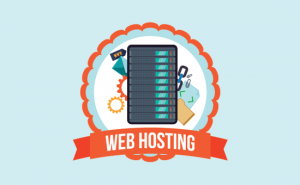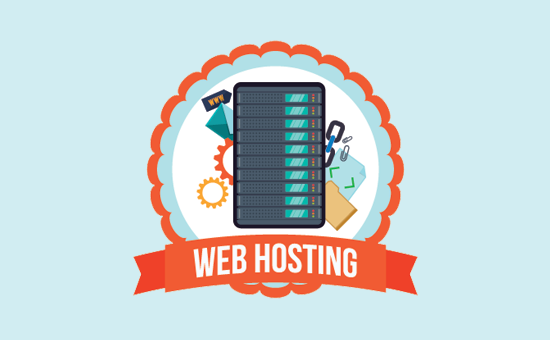As a website owner, there are going to be some major decisions you will have to make throughout the life
There is no one answer for all to these questions, simply because every website is different, with a whole range of varying requirements.
How much traffic does your website receive?
The type of hosting should depend on how much traffic currently comes to your website, as well as future-proofing it for the future.
- For low traffic websites (tens of thousands of visitors a month), shared hosting is the most sensible solution.
- For mid traffic websites (hundreds of thousands of visitors a month), shared or dedicated can be considered, depending on a range of factors:
- Do you get consistent traffic, or does it come in spikes? Dedicated hosting tends to serve better for websites with inconsistent traffic. This is because shared hosting, when the shared server cannot handle anymore requests or traffic, will bounce visitors to different shared IP addresses to compensate – this can impact the loading speed of your website when this happens.
- For large traffic websites (millions of visitors a month), dedicated hosting is the sensible solution.
As briefly mentioned above, shared hosting is when your website is hosted on a server that is shared with other websites. This means that if any of the other websites have increases in traffic, or any other issues, yours could be affected. It doesn’t happen often, but it has the potential to.
The main issue with shared hosting is when you do get an increase in traffic that the shared hosting cannot handle. This is when your website will be migrated to another host with the capacity, changing IP addresses, and the websites on that host that are sharing the bandwidth.
Dedicated hosting does not have this issue, since you own the server – you choose what you want to do with your host, be it to use all the bandwidth up or none at all. This flexibility for traffic is something that is very attractive for high-end websites bringing in considerable amounts of traffic.
How do you monetize your website?
How you monetize your website can influence what type of hosting you should go for, especially if you care about load speed.
For example, if you monetize any way other than PPC, then hosting does not matter as much really.
If you use PPC, then it is potentially a wiser decision to go with dedicated hosting. This is because PPC and the bidding for ad spaces tends to slow website loading times down. To minimize this, dedicated hosting has a much better, on average, pingback than shared hosting. For every resource that is loaded on a website, the ‘ping’ will be sent to the server and the time it takes for the data to come back is the ‘pingback’ time. The more resources you have, the higher the accumulative pingback time. Even reducing this down from 30ms to 20ms can have a ten fold impact on loading speed, if you have many resources that require loading (such as PPC ontop of your website’s contents).
What is your budget?
Although dedicated hosting looks the better solution there, it does come at a cost, literally. You will generally find that dedicated hosting is much more expensive than shared and, if it isn’t, you either have to question how good the dedicated hosting is, or is there extras that come with the shared hosting, that has the potential to make it as good, if not better, than shared hosting.
Such things you can look at include:
- The company itself – do they have good reviews
- Caching – does the server have inbuilt caching. If it does, how good is it?
- CDN – some hosts offer free content delivery networks for their hosting packages
- PHP version – the higher the PHP version, the quicker the website will load
- Customer support – you’ll want the best customer support for hosting, since if the website goes down, the effects on SEO and user experience could be detrimental
Do you want full or partial control?
Shared hosting lacks the control that you gain through dedicated hosting. This is because, although you own all of the content and code of your website, you don’t own or control the server that hosts the content. This is a fundamental flaw with shared hosting, since it means the hosting provider is allowed to juggle and ‘chop and change’ the servers, IP addresses and more to their internal needs.
This can prove problematic if you find the server changes between different countries, and you don’t have a CDN. When this happens, the loading speed of your website will vary depending on what country the hosting providers hosts your website on.
Reliability of Host
It’s all good and well having a really good hosting provider that provides extremely fast loading times. However, if it can’t do that consistently, then it will be all for nothing. Uptime is an extremely important statistic when it comes to choosing hosts, since it is provides insight to the percentage of the time that the website is up and running without 5xx errors. 5xx errors are errors which occur due to server issues, preventing traffic from reaching your website.
With this, the best thing to do for this is look at the uptimes each web server provider guarantees. Since it is a guarantee, you’ll find the numbers to be quite truthful, ranging anywhere from a low 95% all the way up to 99.99%. Of course, with such high uptimes, you can expect the price to increase too.
Ability to Add Domains
The way most packages work is through monthly or yearly subscriptions, with caps at either data or traffic. Typically, you’ll find it be the traffic that is the main variable which will vary the price you’ll pay for hosting, increasing as the traffic increases.
This makes sense, since the more traffic that comes to a website, the more server power that is required to make sure the loading time of the website is as fast and consistent at zero traffic as it is at maximum capacity traffic.
An area that is commonly forgotten is the fact that hosting can be for one website or a multitude of websites. Are you paying for hosting of one website, or do you have the option to expand your hosting to create multiple websites?
If you have a shared plan, it is more likely that the plan is for one website only – this could be a problem if you want to kick start a few other website projects. If this is the case, you might have to purchase a brand new plan for each project you want to start…not ideal.
On the other hand, if you want with dedicated hosting, it does not matter how many websites you put onto the server, as long as it can handle it. This is why it is genuinely a better idea to go for dedicated hosting for multiple websites (3 or more), since dedicated hosting is more flexible to expanding portfolios of websites, as well as increasing traffic amongst them all.
Any Extras?
If you look at what are the highest cost per click keywords in PPC, you’ll find it’s insurance, mortgages, and website hosting. This is because website hosting has the potential to make hundreds, if not thousands of dollars, consistently, every month.
To lure new customers in, hosting providers tend to want to provide a little more than just hosting. Some of these were mentioned above such as caching, CDN, a newer PHP version and more. Other extras that might be worth considering also include:
- Security – if you want to do a website right, you’ll want security of some sort. Typically, this will cost around $100/website/year so if a hosting provider is offering this for free, take this saving into account.
- SEO optimization – will the hosting provider offer training courses, or plugins that improve the SEO of the website you are adding?
- Free SSL certificates – this turns your website into a ‘https’ website, making it much more secure (and also give it better SEO). Again, this would normally cost around $100/website/year.
- Free domains with privacy – once you own a domain, there will still be a cost associated to renewing the domain, typically around $15/year/domain and $10 extra per year to have an increased privacy per domain.




